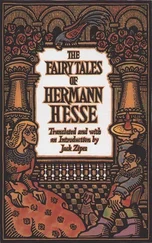As we now read the novel in its final form, of course, the arrangement of the parts is different. The biography of Joseph Knecht, which was to have been but the last in a long series of parallel lives, has grown to comprise the twelve central chapters of the book. The history of the Glass Bead Game and the organization of the cultural province are sketched in a lengthy introduction, and the three parallel lives, along with some poems, are added in an appendix as school exercises of young Knecht. Why this shift in plan, which seems to have taken place in the mid-thirties after parts of the book had already been written and published? At first it was simply a matter of expediency. Hesse found that he could best render “the inner reality of Castalia” through the figure of a dominating central figure. “And so Knecht stepped into the center of the narrative.” In fact, in the first three chapters of his biography we get a far clearer idea of the Castalian ideal at its finest than in the narrator’s more abstract introduction.
But Joseph Knecht ends by defecting from Castalia, a conclusion that was far from Hesse’s mind when he first dreamed of this new version of the spiritual kingdom and when he wrote the first of the lives. At least two factors contributed to change Hesse’s attitude toward the ideal which he had been striving to portray in so many works for almost twenty years. First, the sheer reality of contemporary events — the disintegration of the Weimar Republic, the rise of Hitler, the horrors of Nazism — opened Hesse’s eyes to the failure of the intellectuals and convinced him of the futility of any spiritual realm divorced wholly from contemporary social reality. His ideal had to give way, he wrote, “under the pressures of the moment.” This is the meaning that emerges clearly from young Knecht’s debates with that emissary from the outside world, Plinio Designori, who argues that a life consecrated exclusively to the mind is not only unfruitful, but also dangerous. Fritz Tegularius, the brilliant scholar who is totally unfit for any position of responsibility in the order, is the living example of the excesses of an aestheticism cultivated in isolation from reality. Secondly, Hesse’s growing uneasiness regarding an absolute spiritual kingdom was substantiated by his study of Burckhardt’s writings. It is Burckhardt, in the person of Father Jacobus, who convinces Knecht-Hesse that even the most perfect spiritual institution, in the eyes of history, is a relative organism. In order to survive it must adapt itself to the social exigencies of the times. The central chapters of the biography, therefore, recapitulate in fictional form Hesse’s own shift from his original belief in a haughty Nietzschean elitism to a more compassionate social consciousness — shaped by Burckhardt’s historicism. The ideological tensions between Knecht, Plinio, and Father Jacobus reflect on the level of character the areas of Culture, State, and Church, whose complex interrelationships Burckhardt investigated in his Observations on World History (a course of lectures delivered in 1870–1871 and posthumously published in 1905).
Seen in this light and put into the contemporary idiom, Knecht’s life represents typologically the radicalization of the intellectual, who moves from the vita contemplativa not to the opposite extreme of the vita activa, but to an intermediate position of responsible action controlled by dispassionate reflection. It is essential to understand that Knecht’s defection from Castalia, far from implying any repudiation of the spiritual ideal, simply calls for a new consciousness of the social responsibility of the intellectual. Knecht remains true to his name, which means “servant.” Now his service takes on a fuller meaning. By quitting Castalia, Knecht fulfills two functions. He serves Castalia by warning it, through his example, to forsake its posture of arrogant and self-indulgent autonomy, which can lead ultimately only to its destruction. And he makes a commitment by putting spirit and intellect at the service of the world outside in the person of his pupil, the youth Tito. Knecht’s death has been variously interpreted, and certainly that final scene has symbolic overtones that expand its dimensions. But Hesse made its basic meaning quite clear in a letter of 1947. “He leaves behind a Tito for whom this sacrificial death of a man vastly superior to him will remain forever an admonition and an example.” The spiritual ideal, once attained, has now been put back into the service of life.
The Glass Bead Game, then, is indispensable for a complete understanding of Hesse’s thought. It is possible to read Siddhartha as a self-centered pursuit of nirvana, but Joseph Knecht gives up his life out of a sense of commitment to a fellow human being. It is possible to see in Steppenwolf a heady glorification of hip or even hippie culture, but Joseph Knecht shows that the only true culture is that which responds to the social requirements of the times. The Glass Bead Game, finally, makes it clear that Hesse advocates thoughtful commitment over self-indulgent solipsism, responsible action over mindless revolt. For Joseph Knecht is no impetuous radical thrusting non-negotiable demands upon the institution and demanding amnesty from the consequences of his deeds. He attains through disciplined achievement the highest status in the Order and commits himself to action only after thoughtfully assessing its implications for Castalia and the consequences for himself. Above all — for the novel is not a philosophical tract or a political pamphlet, but a work of art — Hesse suggests that revolt need not be irrational and violent, that indeed it is more effective when it is rational and ironic. This is the value of the temporal distance, the double perspective vouchsafed by the fiction. In the Introduction, looking back at our own civilization from the vantage point of the future, we see it in all its glaring self-contradictions. At the same time, we look ahead to the Castalia of the future, where the problems of our age are displayed in a realistic abstraction that permits us to consider them rationally and dispassionately. Castalia has more than a little in common with the intellectual and cultural institutions of the sixties, to the extent that they have become autonomous empires cut off from the social needs of mankind and cultivating their own Glass Bead Games in glorious isolation. And Knecht’s conviction that a State ruled without the tempering influence of Culture is doomed to brutishness reflects a prevalent contemporary concern: our computerized society has become so bureaucratically impersonal that it is no longer guided sufficiently by forces that are in the highest sense humane. The longer we consider Hesse’s novel, the more clearly we realize that it is not a telescope focused on an imaginary future, but a mirror reflecting with disturbing sharpness a paradigm of present reality.
All of these considerations justify a new translation of Hesse’s late masterpiece. Our society has caught up with his vision. And Richard and Clara Winston have produced a translation that is eminently usable for this age. I do not mean merely that their translation is “correct” in avoiding the many mistakes of the earlier English version. More important: they have succeeded in catching the sense and style of the book. They realize that with this last novel Hesse shifted his focus from the individual to the institution; hence they have not made the mistake of calling it Magister Ludi, which would suggest that it is simply another German Bildungsroman, a pretty fiction of personal development unrelated to the more general concerns of society. Instead, they have reinstated the title that Hesse gave to the original ( Das Glasperlenspiel ), which sums up in a word the glory and tragedy of culture in our time. By capturing the monkish tone of the narrator, who repeats himself with clerical pedantry, the translation opens up the irony of the work. For the Castalian self-obsession from which Knecht defects is nowhere more evident than in the smug complacency of the narrator in the Introduction and opening chapters. Ironically, as he learns to appreciate the meaning of Knecht’s life by writing his biography, the narrator assumes a more humane and, in the finest sense, “spiritual” tone, thus vindicating Knecht’s action.
Читать дальше












